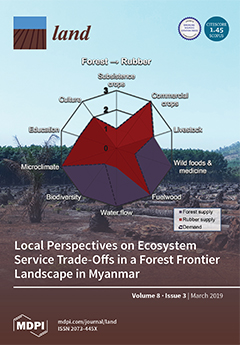Resource information
The ownership of agricultural land has important implications for food systems, the environment, farmer livelihoods, and rural economies, communities, and landscapes. This article examines the changing ownership of agricultural lands in the United States, specifically focusing on Oregon, a state with a history of family farm ownership. I first review historical and recent trends in farmland ownership, including private enclosure, consolidation, investor purchase, development, and rising farmland prices. Next, I examine the county records for all Oregon farm properties that sold between 2010 and 2015. I provide summary statistics about the volume and pace of transactions, price per acre, and the type of owner. I also offer brief cases on top purchasers, attempting to understand their intentions with the farm properties. The findings demonstrate a rapid turnover in Oregon farmland and high prices, though that varies across the state. Agricultural corporations, investment companies, and real estate and development interests are buying large amounts of farmland. I conclude by offering reflections on the implications of the changing ownership and direction for further research.


